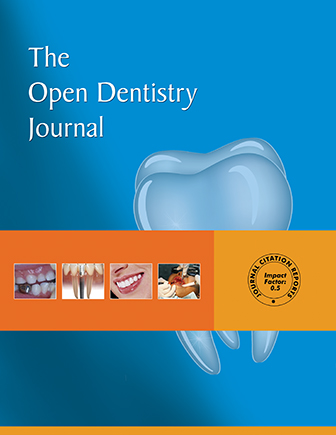Effect of Food Simulating Agents on the Hardness and Bond Strength of a Silicone Soft Liner to a Denture Base Acrylic Resin
Abstract
Statement of the Problem:
Bonding failure between acrylic resin and soft liner material and also gradual loss of soft liner resiliency over time are two impending challenges frequently recognized with a denture base embraced with a resilient liner. Since patients drink various beverages, it is crucial to assess the influences of these beverages on physical characteristics of soft liners.
Purpose:
This in vitro study envisioned to assess the influence of food simulating agents (FSA) on the hardness of a silicone soft liner by employing a Shore A durometer test and also evaluate its bond strength to a denture base resin by using tensile bond strength test.
Materials and Methods:
To test the hardness of samples, 50 rectangular samples (40 mm × 10 mm × 3 mm) were prepared from a heat-polymerized polymethyl methacrylate (Meliodent). Mollosil, a commercially available silicone resilient liner, was provided and applied on the specimens following the manufacturer’s directions. In order to test tensile bond strength, 100 cylindrical specimens (30 mm × 10 mm) were fabricated. The liners were added between specimens with the thicknesses of 3 mm. The specimens were divided into 5 groups (n=10) and immersed in distilled water, heptane, citric acid, and 50% ethanol. For each test, we used 10 specimens as a baseline measurement; control group. All specimens were kept in dispersed containers at 37ºC for 12 days and all solutions were changed every day. The hardness was verified using a Shore A durometer and the tensile bond strength was examined by an Instron testing machine at a cross-head speed of 5 mm/min. The records were analyzed employing one-way ANOVA, Tukey’s HSD, and LSD tests.
Results:
The mean tensile bond strength ± standard deviation (SD) for Mollosil was as follows for each group: 3.1 ± 0.4 (water), 1.8 ± 0.4 (citric acid), 3.0 ± 0.4 (heptane), 1.2 ± 0.3 (50% ethanol), and 3.8 ± 0.4 (control). The hardness values for each group were: 28.7 ± 2.11 (water), 33.2 ± 2.82 (citric acid), 39.2 ± 4.8 (heptane), 32.3 ± 3.56 (50% ethanol) and 22.2 ± 2.08 (control). Mean values for hardness indicated that all of the food simulating agents significantly increased hardness of the Mollosil soft liner compared to the control group (p<0.05). The results of tensile bond strength depicted that water and FSA decreased the bond strength of the soft liner -denture base resin compared to the control group and it was statistically significant (p<0.05).
Conclusion:
The food simulating agents could influence the mechanical properties of silicone soft liners; hence, clinicians should inform their patients concerning their possible adverse effects and complications.


